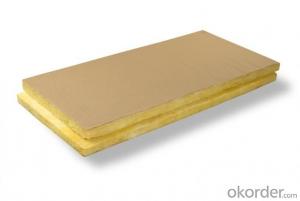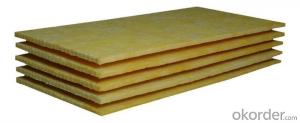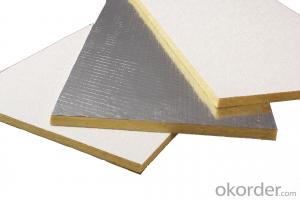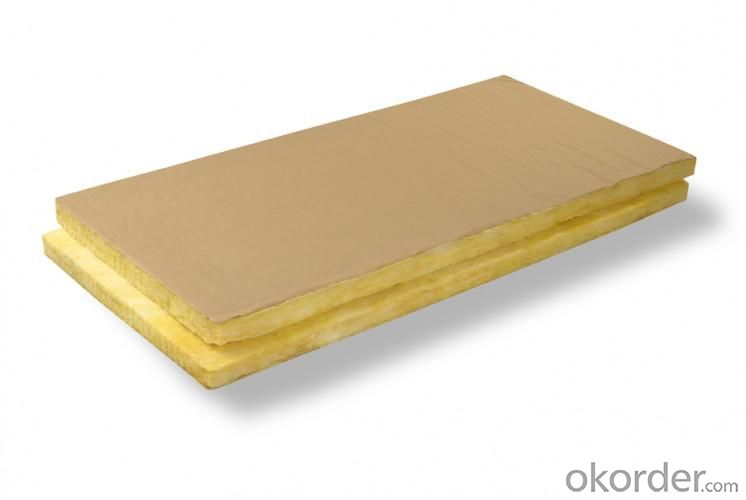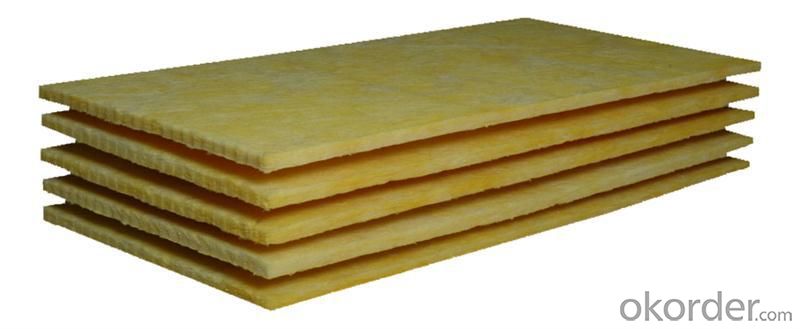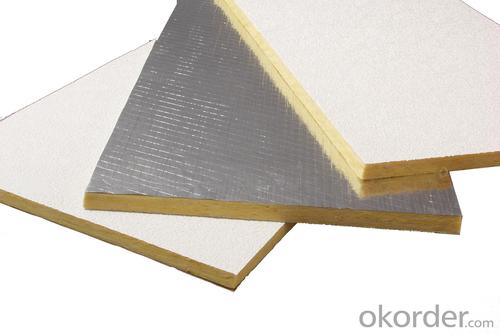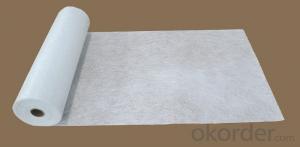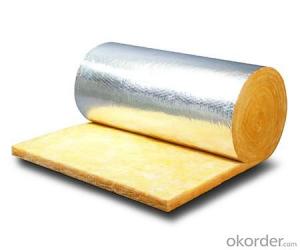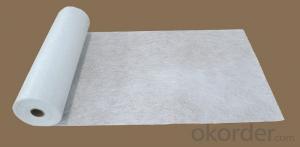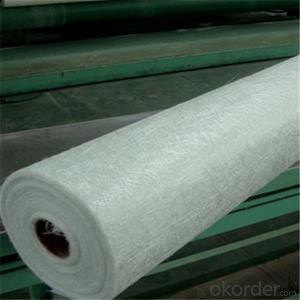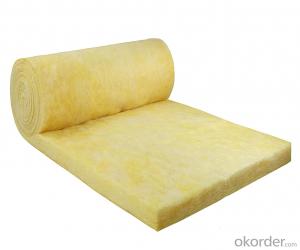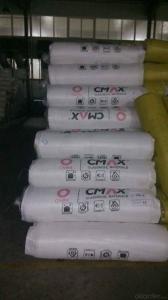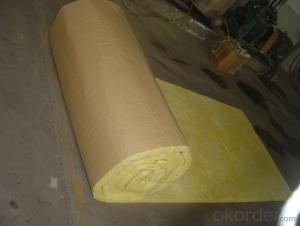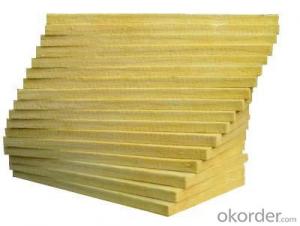Fiberglass Mat Tissue Glass Wool Insulation Blanket with Kraft Facing
- Loading Port:
- Tianjin
- Payment Terms:
- TT OR LC
- Min Order Qty:
- 5000 m²
- Supply Capability:
- 20000 m²/month
OKorder Service Pledge
OKorder Financial Service
You Might Also Like
1.Description of Glass Wool Insulation Blanket With Kraft Facing:
At the system HOT END, the raw materials are dosed, mixed, melted, fiberized, impregnated with a special binder and formed into a primitive mat of very fine fiber glass. Continuous conveyors transport the mat to the COLD END of the plant for binder polymerization. The product is then cut to shape and packed for shipping.
Width: 0.4-1.2m
Length: 5-30m
Thickness: 25-200mm
Density: 10-50kg/m3
2.Main features of Glass Wool Blanket:
1.Excellent thermal, acoustical properties
2.Light weight and easy to fabricate on job site
3.Non-combustible and fire-retardant
4.Very economical, especially when using thick layers of insulation
5.Durable, life-time and termite proof
3.Glass Wool Blanket Images:
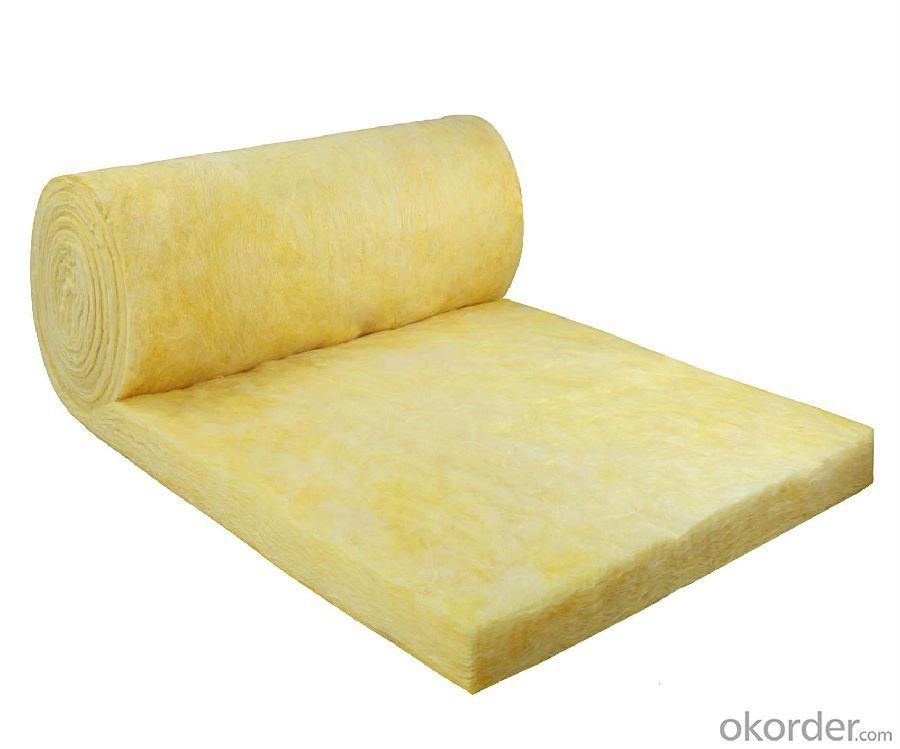
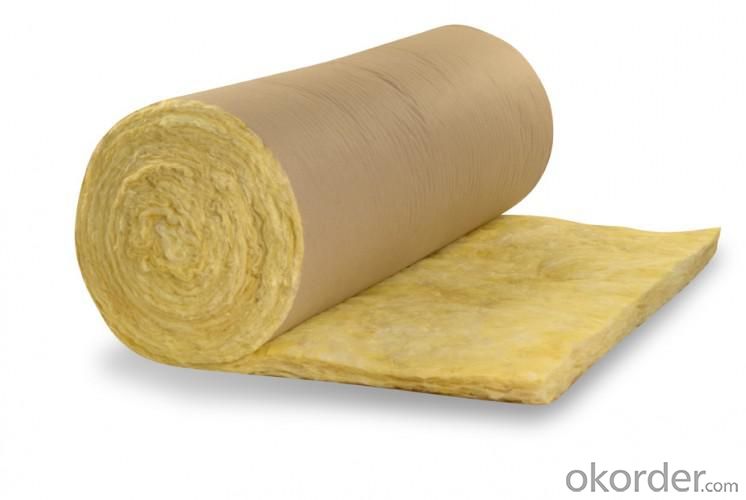
4. Glass Wool Insulation Blanket Technical Parameters:
Property | High/low temperature resistance, oil and fuel resistance, weathering resistance, O zone resistance etc. |
Shape | According to your requirement. |
Color | Any color is available ,according to your requirements. |
Material | NBR, CR, SBR, EPDM, IIR, NR, EP, Silicone, VITON etc. |
Hardness | 30-90ShoreA |
Delivery | In 10 days |
Packing | Plastic bag & carton box or according to your requirements. |
Application | Electronic field, industrial machine & equipment, house-hold appliance, telecommunication, automobile, medical equipment industry etc. |
5.FAQ
We have organized several common questions for our clients,may help you sincerely:
①How about your company?
A world class manufacturer & supplier of Glass Wool Blanket is one of the large scale professional investment casting production bases in China,consisting of both casting foundry forging and machining factory. Annually more than 8000 tons Precision casting and forging parts are exported to markets in Europe,America and Japan. OEM casting and forging service available according to customer’s requirement.
②How to guarantee the quality of the products?
We have established the international advanced quality management system every link from raw material to final product we have strict quality test; We resolutely put an end to unqualified products flowing into the market. At the same time, we will provide necessary follow-up service assurance.
- Q: Is fiberglass mat tissue suitable for wind energy applications?
- Yes, fiberglass mat tissue is suitable for wind energy applications. It is commonly used as a reinforcement material in wind turbine blades due to its high strength-to-weight ratio, excellent fatigue resistance, and ability to withstand harsh environmental conditions. The fiberglass mat tissue enhances the structural integrity and durability of the blades, enabling them to efficiently capture wind energy and sustain long-term operation.
- Q: How is fiberglass mat tissue used in the production of printed circuit boards?
- Fiberglass mat tissue is used as a reinforcement material in the production of printed circuit boards (PCBs). It is typically impregnated with epoxy resin and then laminated onto the copper-clad laminates. This helps to improve the mechanical strength and stability of the PCB, making it more resistant to bending, warping, and other forms of physical stress. Additionally, the fiberglass mat tissue provides insulation between the copper layers, preventing short circuits and enhancing the overall performance and reliability of the PCBs.
- Q: Is fiberglass mat tissue resistant to moisture vapor transmission?
- Yes, fiberglass mat tissue is resistant to moisture vapor transmission.
- Q: Is fiberglass mat tissue suitable for construction applications?
- Indeed, fiberglass mat tissue proves to be a fitting material for construction purposes. Renowned for its robustness, longevity, and ability to withstand diverse environmental conditions, this versatile substance is frequently employed in roofing, flooring, insulation, and wall panel installations. Fiberglass mat tissue emerges as an exceptional selection for construction ventures as it bestows reinforcement and stability upon a range of materials. When incorporated into roofing materials, it fortifies them against impacts, weathering, and fires. Similarly, it bolsters the strength and durability of flooring systems, rendering them capable of withstanding substantial loads and heavy foot traffic. Moreover, fiberglass mat tissue exhibits commendable insulation capabilities. It serves as an efficacious insulating component for walls, ceilings, and floors, enabling the maintenance of a comfortable indoor temperature while diminishing energy consumption. Its thermal and acoustic insulation properties render it an ideal choice for construction applications. Furthermore, its imperviousness to moisture, chemicals, and corrosion makes fiberglass mat tissue a suitable option for deployment in areas characterized by high humidity or exposure to harsh chemicals. Thanks to its resistance to decay, it guarantees durability, ensuring longevity in construction projects. To conclude, fiberglass mat tissue is an apt choice for construction applications due to its strength, durability, insulation properties, and resistance to various environmental factors. Its adaptability and reliability have cemented its popularity within the construction industry.
- Q: How is fiberglass mat tissue used in the production of storage containers?
- The unique properties and benefits of fiberglass mat tissue make it a common choice in the production of storage containers. This thin layer of non-woven glass fibers offers excellent strength and durability, reinforcing the structure of the containers and ensuring they can withstand heavy loads without deforming. In addition to its strength, fiberglass mat tissue is highly resistant to corrosion, moisture, and chemicals. This makes it perfect for storage containers that may be exposed to harsh environments or contain corrosive substances. By acting as a protective barrier, the fiberglass mat tissue prevents any potential damage or degradation to the container. Furthermore, fiberglass mat tissue is lightweight, making it easier and more cost-effective to transport and handle during production. It also helps reduce the overall weight of the storage container, allowing for increased payload capacity and more efficient storage and transportation. During the molding process, the fiberglass mat tissue is typically applied to the surface of the container. It is often impregnated with a resin or adhesive, which, when cured, creates a strong bond with the container, enhancing its structural integrity. Overall, fiberglass mat tissue is crucial for the production of high-quality and long-lasting storage containers. Its strength, durability, corrosion resistance, and weight reduction capabilities make it the preferred choice for manufacturers in this industry.
- Q: How does fiberglass mat tissue compare to fiberglass insulation batts?
- Fiberglass mat tissue and fiberglass insulation batts differ in composition, purpose, and usage. Fiberglass mat tissue, also known as fiberglass veil or fiberglass veil mat, consists of fine glass fibers woven into a thin fabric. It is primarily used to reinforce composites like roofing materials, laminates, and automotive parts, providing strength, durability, and resistance to cracking or tearing. This material is commonly employed in applications that require high tensile strength and dimensional stability. On the contrary, fiberglass insulation batts are thick, flexible panels made from compressed fiberglass fibers. These batts are specifically designed for thermal insulation and are commonly used in residential and commercial buildings. Their main function is to create a thermal barrier, improving energy efficiency by reducing heat transfer. Fiberglass insulation batts are typically installed in walls, attics, or crawl spaces to minimize heat loss or gain, resulting in better temperature control and reduced energy costs. It is essential to note the distinct purposes and applications of fiberglass mat tissue and fiberglass insulation batts when comparing them. Fiberglass mat tissue should not be used as a substitute for insulation batts, as it is not intended for thermal insulation. Conversely, fiberglass insulation batts are not suitable for use as a reinforcement material in composites. Regarding construction and installation, fiberglass mat tissue is commonly used in combination with other materials, such as resins or adhesives, to create a composite structure. It is easily cut, shaped, and molded to fit various shapes and sizes. On the other hand, fiberglass insulation batts are available in pre-cut sizes and can be easily installed by fitting them between framing studs or joists. Both fiberglass mat tissue and fiberglass insulation batts have their advantages and disadvantages, depending on the specific project requirements. While fiberglass mat tissue offers superior strength and dimensional stability for composites, fiberglass insulation batts excel in providing thermal insulation for buildings. Ultimately, the choice between the two will depend on the intended application and desired outcome.
- Q: Can fiberglass mat tissue be used for making lightweight automotive parts?
- Yes, fiberglass mat tissue can be used for making lightweight automotive parts. Fiberglass mat tissue is a lightweight, versatile material that is commonly used in the manufacturing of automotive parts. It offers excellent strength-to-weight ratio, making it ideal for producing lightweight components without compromising on durability and performance. Additionally, fiberglass mat tissue can be easily molded into various shapes, allowing for complex designs and customization in automotive parts. Moreover, it provides good resistance to corrosion, chemicals, and temperature fluctuations, further enhancing its suitability for automotive applications. Overall, fiberglass mat tissue is a reliable and cost-effective choice for creating lightweight automotive parts.
- Q: Is fiberglass mat tissue resistant to chemicals?
- Yes, fiberglass mat tissue is generally resistant to chemicals. The composition of fiberglass mat tissue, which consists of fine glass fibers bonded together with a resin, provides it with excellent chemical resistance properties. This resistance allows the fiberglass mat tissue to withstand exposure to a wide range of chemicals without deteriorating or losing its structural integrity. However, it is important to note that the specific chemical resistance of fiberglass mat tissue may vary depending on the type and concentration of the chemical it comes into contact with. Therefore, it is always advisable to consult the manufacturer's guidelines or conduct appropriate testing to ensure compatibility with specific chemicals.
- Q: What is the maximum temperature that fiberglass mat tissue can withstand?
- The specific type of fiberglass material being utilized determines the maximum temperature that fiberglass mat tissue can endure. Typically, fiberglass mat tissues are engineered to withstand temperatures of up to 600 degrees Fahrenheit (315 degrees Celsius). Nevertheless, it should be emphasized that the temperature resistance may fluctuate due to various factors, including material thickness, manufacturing techniques, and the intended usage. For precise information regarding the maximum temperature tolerance of a specific fiberglass mat tissue, it is advised to refer to the manufacturer's specifications or technical data sheets.
- Q: Can fiberglass mat tissue be used in corrosive environments?
- Fiberglass mat tissue can be used in corrosive environments to some extent, but its resistance to corrosion depends on the specific composition and quality of the material. Fiberglass mat tissue is typically manufactured using a combination of fiberglass strands and a binder material. While fiberglass itself is generally resistant to corrosion, the binder material used in the mat tissue can vary and affect its resistance to corrosive environments. Some binders may provide better protection against corrosion, while others may be more susceptible to degradation. To enhance the corrosion resistance of fiberglass mat tissue in corrosive environments, additional protective coatings or treatments can be applied. These coatings can provide a barrier against the corrosive elements and extend the lifespan of the material. It is important to consider the specific corrosive environment and consult with experts or manufacturers to determine the suitability of fiberglass mat tissue for a particular application. They can provide guidance on the ideal composition, treatment, and any necessary precautions to ensure optimal performance and durability in corrosive environments.
Send your message to us
Fiberglass Mat Tissue Glass Wool Insulation Blanket with Kraft Facing
- Loading Port:
- Tianjin
- Payment Terms:
- TT OR LC
- Min Order Qty:
- 5000 m²
- Supply Capability:
- 20000 m²/month
OKorder Service Pledge
OKorder Financial Service
Similar products
Hot products
Hot Searches
Related keywords
